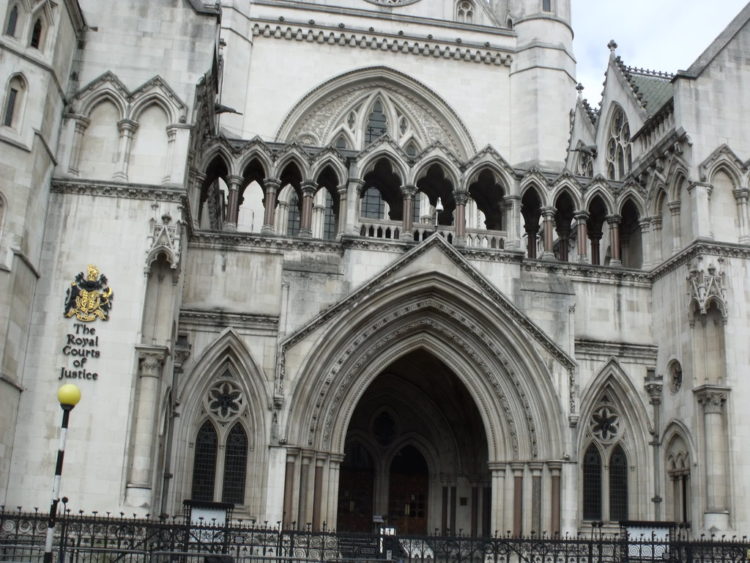By James Simons-
A judge has tuned down an application to place a delinquent gang member in secure accomodation, after he refused a council’s application to place a gang-affiliated teenager in secure accommodation.The unnamed local authority made a submission to the High Court to have the gang affiliated member moved from his home, citing the grave risk of harm he faced if he remained at the resident he previously shared with his mother and two younger siblings.
The teenager was involved in so called ‘County Lines’ drug dealing, alleged involvement in knife crime and a recent shooting, with the associated risk of reprisals, and continuing possession of or access to firearms. However, the troubled teen , who had been found in possession of heroin at a property where there were weapons present, and was later arrested for cocaine possession and convicted for actual bodily harm, strongly resisted the application to move him.
He claimed it was unfair, and said he did not feel in danger. This was despite the fact he had also been stabbed in a machete and knife attack but refused to make a criminal complaint . Early in 2019, he was also believed to have been involved in another knife attack and in firearms offences. After being served with a ‘gun crime nominal notice’ by police in April 2019, the chaotic teen was arrested for attempted murder in relation to a shooting. His mother and two younger children agreed to stay away from the family home due to fears of reprisals, but the stubborn teen foolishly refused to move or to accept he was at risk.
POLICE SUSPECT
The application came following the treatment of the boy as a police suspect in a shooting that took place in broad daylight in front of witnesses. Decision makers decided at a meeting that the risks of reprisals, and further violent acts by the boy justified the request to placed him in secure accommodation, something the boy and his mother opposed. The boy was considered to have been at risk of criminal exploitation since 2017 and was assessed by police as being an active member of an organised crime group .
The children’s commissioner and family courts president Sir Andrew McFarlane, both lamented the extent to which councils are circumventing the Children Act 1989 in order to detain young people at risk. In many instances this involves using the High Court’s powers to deprive young people of liberty in non-approved settings because of a dire shortage of compulsory secure accommodation under section 25 of the Children Act. The boy’s was case was different because he had no history of being ‘looked after’ and was too old to be made subject to a new care order . He was also ineligible for secure accommodation under section 25.
Presiding over the case, Mr Justice MacDonald said he could not criticise the local authority for “seeking to explore the outer boundaries of the court’s jurisdiction” given the “immense seriousness” of the situation. However, he concluded the orders sought by the council and backed by a children’s guardian, which would effectively authorise KS’s removal from his mother’s care without her consent, lay beyond the scope of the court’s power.
While KS’s mother and two younger children agreed to stay away from the family home due to fears of
On 26 April 2019 the local authority successfully obtained a without-notice order under the inherent jurisdiction of the High Court to detain KS, which was extended on 3 May and listed for a final hearing.
“It will be seen that the order is considerably wider than the usual terms of a deprivation of liberty order confirming that it is lawful for a local authority to deprive a child of his or her liberty [in non-approved accommodation],” Justice MacDonald observed.
“The order made under the inherent jurisdiction purports to delegate to the police power to enter any premises, detain and restrain KS and thereafter transport him to a placement that will deprive him of his liberty,” he added. “This part of the order appears to be an attempt to replicate, under inherent jurisdiction, the terms of a recovery order under section 50 of the Children Act.”
The day after the initial order was made, KS was detained at a non-secure unit but absconded on 1 May, first telling a social worker that he was not involved in the April shooting or with gangs.
While he had not been found by the time of the final hearing, KS wrote to the court via his lawyers saying that he considered the deprivation of liberty authorisation unfair and that he did not feel in danger. He added that he wished to go back to his mother but would contemplate returning to the non-secure unit if the threat of secure accommodation, which had by then been identified, was “taken off the table”.
Replicating section 25
But social workers said KS’s mother had not taken the threat to his life seriously and that risks were escalating.
The local authority argued that if a secure accommodation order could not be made under section 25 of the Children Act, it was in his interests for the court to replicate this using its inherent jurisdiction.
This jurisdiction enables the High Court to make any order or determine any issue in respect of a child, in that child’s best interests.




